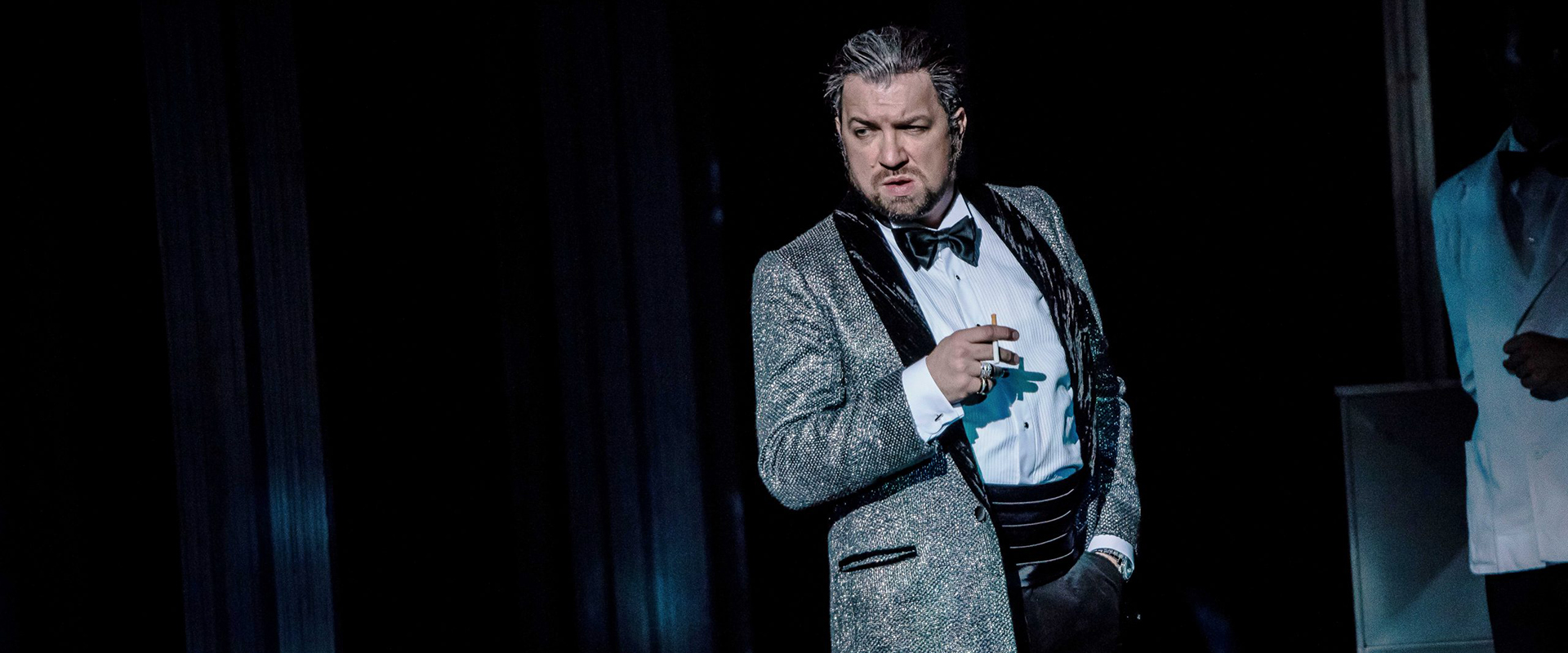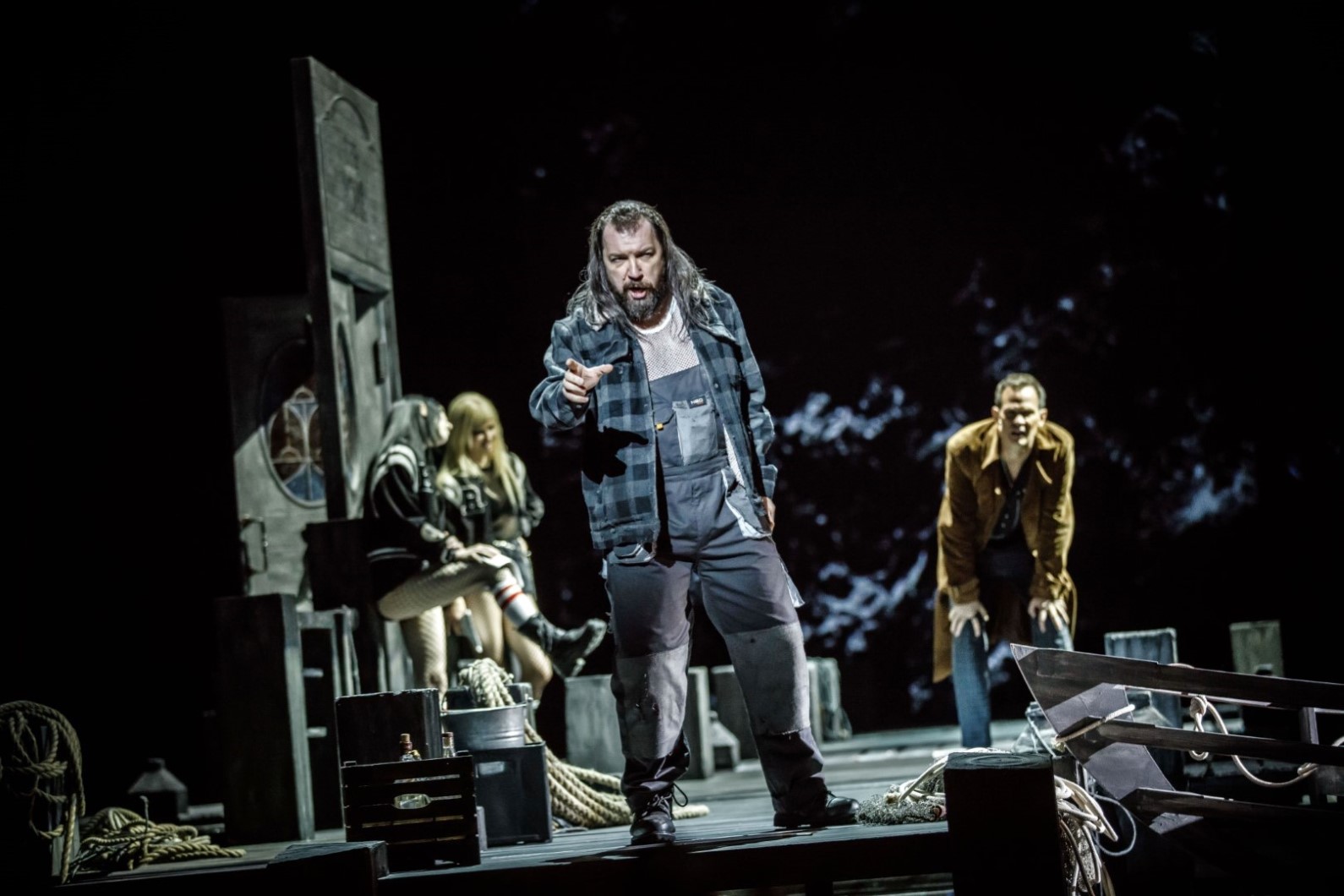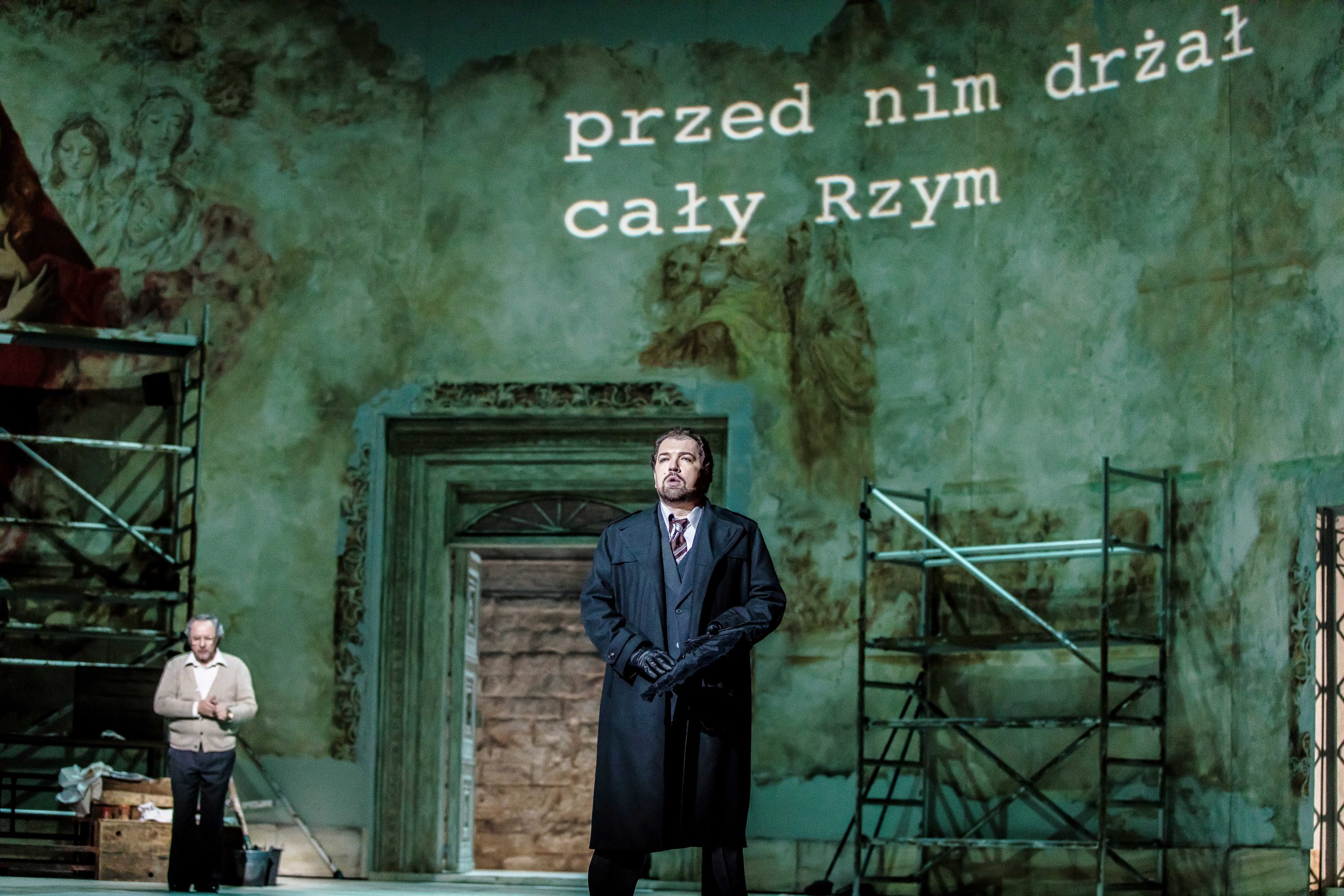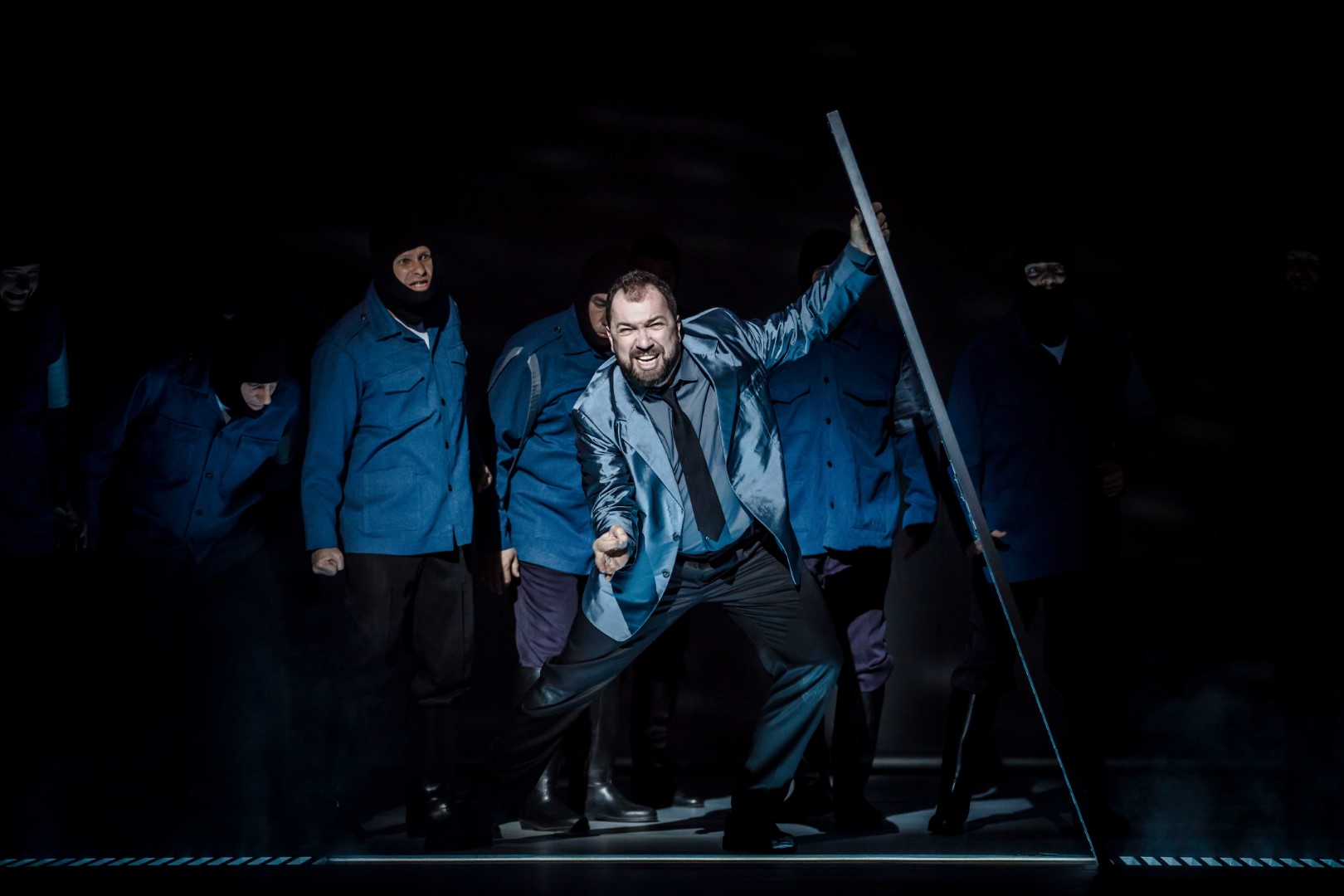 Baritone Krzysztof Szumański: The role of Macbeth still lies ahead of me
Baritone Krzysztof Szumański: The role of Macbeth still lies ahead of me
In May, Baritone Krzysztof Szumański sings Scarpia — the cruel chief of police in “Tosca” — on the stages of the Wrocław Opera and the Polish National Opera in Warsaw. We spoke with the artist about the behind-the-scenes work of a singer, promoting opera among the youngest audiences, and vocal capabilities that allow performing a diverse repertoire.
Baritone, the most popular male operatic voice, sounds lower than a tenor but higher than a bass. Did you sing this voice type from the very beginning of your musical path?
No, at first I was a bass-baritone, which is a lower voice. Even earlier, when I was 16 or 17, I was a tenor. I entered the Warsaw Academy of Music as a bass-baritone and sang parts for this voice type until I was 40. Then, suddenly, in 2013, I felt my voice changing. I went to Zagreb, where I worked intensively with my professor Vitomir Marof and prepared roles such as Scarpia in “Tosca” and Germont in *La Traviata*. It often happens that a voice matures—especially a dramatic voice — and then it requires adjusting the repertoire, changing singing technique, and taming the nature of the voice through repertoire and technique. I was fortunate that my professor could devote a lot of time to me, something that is now so rare in our busy world. Opera art is very demanding and requires a lot of time and work, a scarce commodity nowadays.
So you didn’t just switch from lighter roles like Figaro and Bartolo to dramatic baritone parts?
It wasn’t that simple. I worked on new roles for about a year and a half. Shortly after, I got a contract at the Staatstheater Darmstadt, where I performed a completely new repertoire: Scarpia, the Dutchman, and Bluebeard. Although the last role is often assigned to basses, we also know it from performances by the legendary baritone Dietrich Fischer-Dieskau. After two years in Darmstadt, my adventure began with the Polish National Opera in Warsaw, where I have been performing for eight seasons.
The classification of vocal categories in opera singing, both male and female, is little known to the average person. Moreover, the voice changes over the years and may shift from one category to another.
With age, the voice can become denser, more massive. This usually happens after forty and opens up the possibility of changing repertoire. I know many singers who noticed their voice evolved at this age and who transitioned into more dramatic baritones. That was the case with one of the greatest baritones, Dmitri Hvorostovsky, who changed his singing style over the years. In working on the voice, corrections and guidance from teachers who can notice subtle changes are very important. It’s not a one-time process. A singer must adapt their voice throughout their life to changing physical conditions.
Is there any role you particularly value?
For many years, I dreamed of becoming a dramatic baritone and very much wanted to perform the role of Germont in “La Traviata.” I managed to sing this role in 2022 at the Polish National Opera in Warsaw. Although it is technically demanding, I hope to revisit it many more times in the future. Another role I would very much like to sing is the title role in Verdi’s “Macbeth.”
You have lived in Belgrade for ten years. How is the musical environment there?
Serbs are extremely musical people. In every so-called kafana (restaurant), there is always live music, often by Gypsy bands, and on the streets you can hear a variety of musical genres. Music is an important cultural element, and Serbs know how to sing and are not ashamed of it, unlike us, where spontaneous singing is often considered odd. Regarding high culture, there are opera houses in Belgrade, Novi Sad, and Niš, which offer permanent employment. The repertoire is classical, Verdi-based: “Rigoletto,” “La Traviata,” “Nabucco.” Unfortunately, Serbia struggles with financial problems that affect culture and the need to modernize infrastructure. The Belgrade Philharmonic needs a new hall, as the current one, with only 900 seats, does not meet the requirements of a modern city.
You have worked in Poland and abroad, German theaters in particular. Do opera stages in different countries have their own specifics?
There are differences, but they are not very pronounced. I worked five years at Deutsche Oper Berlin, two years at Staatstheater Darmstadt, two years at the Royal Opera House in London, and now for eight years I collaborate with the Polish National Opera in Warsaw. I also had the pleasure to work with operas in Łódź, Kraków, Poznań — where I wrote my PhD thesis — and in Gdańsk, where I debuted over 25 years ago. I must say I don’t notice any significant difference. In Germany, despite much larger production budgets, I encountered similar challenges. In Poland, I appreciate the professionalism and supportive atmosphere in Polish opera houses, and the sound of Polish orchestras is of an exceptionally high standard.
How does the preparation process for new opera productions in Poland compare to other countries?
In Poland, preparing a new production typically takes longer — around six to eight weeks — whereas in Germany it rarely exceeds five. Naturally, the timeline depends on the nature of the production; for large-scale operas, rehearsals can last up to two months. In Germany, especially for revivals, rehearsals often last just two weeks, which makes the process extremely intensive.
You have been involved in music education projects for years. Do you see yourself as someone who shapes young opera audiences?
Yes, absolutely. I believe educating future generations is essential. I would like going to the opera to feel natural for children and young people. I’ve witnessed educational programs — for example, in London — where 3,500 children attended a morning performance of “The Magic Flute” and sang Papageno’s aria together with the orchestra. It was an amazing sight that showed me how important opera education from an early age is. Initiatives like this should exist in Poland as well, so that future generations have easy and natural access to classical music and opera. I’m currently a Ministry of Culture grant recipient, working on a children’s version of Moniuszko’s “The Haunted Manor.” I’m preparing an adaptation that will be accessible to younger audiences. I hope the project comes to fruition, though its completion also depends on budgetary decisions made throughout the year.







